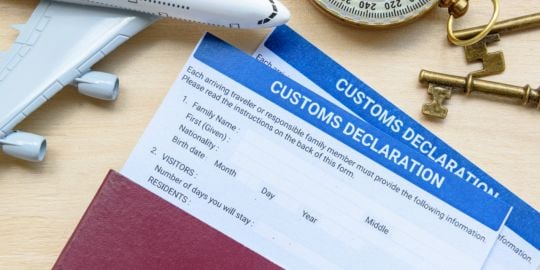We know that the cost of living in Panama is a lot less than in the U.S. but we'd like to be able to have an idea of what real, actual people pay for things like electricity, water, TV, Internet etc....does anyone have info on that or are they those who would be willing to share their own personal info? Thanks so much.
Actual Cost of Living Thoughts?
How much you are going to spend depends on how you want to live.
You can rent for $500 a month but that will have no utilities included and definately no internet. Most locals do not have internet nor cable service for the TV. I live with no clothes dryer (all my clothes get hung, rain or shine, on the line or under the rafters). I have no hot water except for the 'suicide shower' which means I learned to wash my dish's and my clothes with no hot water. We do not own a car here because taxi's are so cheap and the local roads are so rough that having a car would be a waste.
So, if you want to rent a home with hot water on demand, if you want a clothes dryer and all the bells and whistles of living like an American here expect to pay upwards of $1000 a month. I've seen numbers that say some people are living between $1700 and $2000 a month. That also means they are eating out a lot. They are also drinking a lot, which sadly is pretty common.
We are living here for under $800 a month. We have satellite TV and wireless internet that works well when the power doesn't go out. That price also includes our food which is about half that amount but we don't buy alcohol and we eat at home except for maybe once a month.
There are issues with being in Panama that no matter how much you pay you will have. Power outages, water outages, mold issues, and language barrier issues.
So the myth of the cost of living in Panama being less than the US is no longer really true. I have given up a lot of the regular things Americans take for granted in living here. I dearly would love hot water for my dish's.
I think AuntieFlo is right. It also depends on where you want to live. If you plan to live in Panama City or in one of the other popular expat haunts, like Boquete, you can expect to pay quite a bit. If you're willing to go a little more local and live in an area like Las Tablas or Aguadulce, both of which are nice towns (they're just a little more third-world and a lot more boring) you can find a house for rent for somewhere in the $300 per month range.
Electricity is another part of your budget that can be very low if you live like a local. I live in the city and have a large air conditioner that runs close to 24-hours per day. I have a small deep freeze, a ceiling fan in each bedroom, a washer and dryer (dryer is mostly gas) and I pay $300 or so per month. That's a lot. And I hate it. I know a lot of people who pay less than $100. If you're in a one-bedroom apartment/condo or a small house and you plan to use fans most of the time, you should be able to stay below $100 per month. Most Panamanians use gas for cooking and drying their clothes (unless you plan to hang dry your clothes like AuntieFlo). I tried the hang drying, but I found that my clothes always had a funky smell to them after. The dryers and stove can operate on the typical small propane tank you'd use for a gas grill in the U.S. You can swap those gas tanks out for less than $5 and each one will probably last about a month. You can buy larger gas tanks that last about 3 months for like $40.
Like AuntiFlo said, if you plan to eat out a lot, you have to know your budget will increase significantly. Unless you're in one of the small towns like I mentioned before. My wife and I had lunch in Las Tablas for $5.50 total for the two of us. So for about $2.25 each we got a main dish (meat or chicken), a side salad, rice with beans, a small soup, and a juice. You're not going to find lunch for that price in the banking district of Panama City's Marbella. But you will find it in Las Tablas. I had a full pound of shrimp with fried plantains near the beach in Aguadulce for less than $10. If you like pastries and cheap snacks like the meat filled empanadas, you can grab a bite to eat at many of the fondas or streetside vendors for about fifty cents a pop. So eating can be very cheap if you don't mind eating like a local. Also, like AuntieFlo said, most expats love to drink. If you drink local beer you'll only pay like 49 cents per can. That's a 12-pack of beer for $6. Panama's Ron Abuelo is much cheaper than paying for Captain Morgan.
In most places you'll save a lot of money not owning a car. In fact, in many of the towns in the interior, I'd recommend you ditch your high-maintenance vehicle. You can catch a bus from places like Las Tablas to Panama City's Albrook Mall (which has a supermarket, restaurants, major department stores, a huge movie theater, and even a bowling alley) for less than $10 each way. It would cost a heck of a lot more than that in gas to drive back and forth. You can take a taxi from one place to any other place in town (in most of Panama's interior towns) for about $2. I have 4 kids so I'd definitely need a car (for the amount of groceries I buy alone) but if I lived outside of Panama City, and didn't have kids, there's no way I'd own a car. Inside the city you're better off having one, unless you can afford to live in the high-rent district of Marbella/Bella Vista, where you can walk to most places.
Hmm, what else...groceries are quite affordable here if you can learn to buy Panamanian brands. The Americanized supermarkets like Riba Smith will have most imported brands that you're used to, but you're going to pay a lot more for them here than you would in the States. A 12-pack of Mountain Dew, for example, will cost about $8. You'd pay half that in the states. Milk is not cheap here though, even the Panamanian brands. A gallon of Panamanian brand milk is $4.49. I just bought one tonight.
I hope I've helped a little bit. I guess what I'm trying to say in all this is you can still live here on a shoestring budget, if you're willing to go a lot more local than most expats want to go. Just to give you an idea of rents, you can expect to pay at least $1,500 in rent in Panama's hip and trendy old town of Casco Viejo, close to $1,700/$1,800 in the Marbella (Panama City), $500 in the beach town of Pedasi, $300 in Las Tablas, probably close to $1,000 in the mountain town of El Valle de Anton, probably close to $800 (read AuntieFlo's post) for Boquete. You can always find cheaper or a lot more expensive though depending on what amenities you need.
I blog about a lot of the nuts & bolts of living in Panama in my blog at www.thestayathomegringo.blogspot.com. Check it out. Maybe you'll find some info there that can help. I just wrote about how affordable a trip to the movies can be here.
Chris
Here's what it costs us to live in Las Tablas, Panama, and an explanation of what's included.
http://futureexpats.com/las-tablas-pana … -of-living
Hope you find it helpful.
Thanks for the info, I am in a coin toss, Costa Rica, Ecuador, or Panama? Has anybody lived in all three?
Differences? in cost of living?
Thanks in advance
Almostthere wrote:Thanks for the info, I am in a coin toss, Costa Rica, Ecuador, or Panama? Has anybody lived in all three?
Differences? in cost of living?
Thanks in advance
I haven't lived in all three, however, from hearing from others - Costa Rica is the most expensive, then Panama with Ecuador be the least expensive.
-------
As for living expenses in Panama - I live in Boquete. Understand the we own our home, so no rent or mortgage. Electricity in Panama is normally higher than in the US, but in Boquete with the temperatures between 60 to 80 degrees year round no one here has AC or heat as it's not needed.
Our home is 2000 sqft with 1000 sqft of outside livable patio area.
Electricity - 28.00 a mo. (25% jubilado disc)
Gas - 5.37 a mo.
Landline and DSL - 30.00 a mo (for 2 mbsp of speed)
Trash - 20.00 a year
Water - 4.50 a mo.
We have Hospital Chiriquí health plan - 55.00 pp a mo.
Car insurance - 185.00 a year
Fresh produce here is very inexpensive. Meats are about the same as in the US. If you cook your own meals, you can live cheaply.









